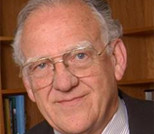Does Your Family Need a Brand?

Investing in brands, or what economists call reputational capital, is critically important for organizations that hope to be successful in the marketplace. A firm’s brand can give life and meaning to its products and services, and when consumer experiences with the brand are consistent with expectations, a brand can engender trust and respect.
What about families and people? Wouldn’t it make sense for them to have brands? And if they did, what might the benefits be?
Harvard Business School professor and world-renowned management consultant Clayton Christiansen tells a wonderful story about how he and his wife and children decided to establish a family brand. As reported in The Wall Street Journal, the stage was set for a family conference when one of the Christiansen children got in trouble at school for pushing another child. Christiansen, an expert in assisting business firms in developing their brands, apparently steered the conversation in that direction. The family decided that they would have a brand—a desired family reputation—to be known for: “kindness.” With a brand like that, pushing and bullying had to be a thing of the past, at least most of the time.
I often include the Christiansen brand story in presentations on the economy. This comes near the end of my lecture, well after having discussed the national economy and how larger economic forces may affect our region and local businesses. If the national economy is slowing, that doesn’t mean individual businesses have to slow down, too. Where any one business chooses to head and how it fares will be determined at least partly by the team and its leaders—the people—that define the business. They have the power to establish, maintain or redefine the business’ brand, or what they want to stand for.
Of course, I emphasize that brand-building doesn’t come easily or at low cost. Conversations, leadership and continual teaching are required.
Because of positive reactions I have received for my brand discussions, I decided this past Thanksgiving that I would carry the message to my family when we gathered for our traditional American holiday dinner. My wife Dot and I had a large turnout this year. There were 24 gathered around the tables, and, as always, there was plenty of good food and good fellowship to enjoy.
After dinner and some family singing, this year accompanied by a kazoo chorus, we gathered in the living room and talked some more. It was then that I told the Christiansen family brand story. After swapping some ideas, I challenged each person to think about his or her individual brand and asked each family unit to have a brand conversation, indicating that I would send a reminder at Christmas.
Interestingly enough, three family units—independently—chose “gratitude” as their brand. Another picked “forgiveness,” and a third, which involves second marriages for both partners, selected “second chances.” One person chose “can do” as an individual brand, and another family followed the Christiansen’s lead and adopted “kindness.” Some family members are still talking about brands, while others have moved on to other activities. Of course, I am hoping that the exercise will not end for any of us; that we will continue to think about who we are and who we want to be.
What does this have to do with economics? With prosperity? Plenty, I believe.
In his 1961 book “The Achieving Society,” Harvard psychologist David McClelland reported on years of research dedicated to answering just one critically important question: Why do some nations of people achieve while others do not? McClelland used income growth—relative prosperity—as the measuring rod. After gathering and sifting lots of data on a host of countries, McClelland and his associates identified one, just one, variable that was common to national achievement.
That variable was the frequency of the theme of achievement found in the stories read by mothers to young children. It was a distinguishing, but unstated, brand that embraced optimism and a desire for a better life.
But how might all this relate to people in business and their ability to move against national trends in a slowing economy or outpace an economy that is doing well?
Those businesses that choose to be generous and kind when dealing with customers and suppliers will do better than those that do not. Those who make gratitude and forgiveness a habit will more likely endure or prosper even in a slow economy. And those that embrace optimism as part of their brand will more likely than not be counted among the achieving enterprises.
How about it? What’s your brand?










